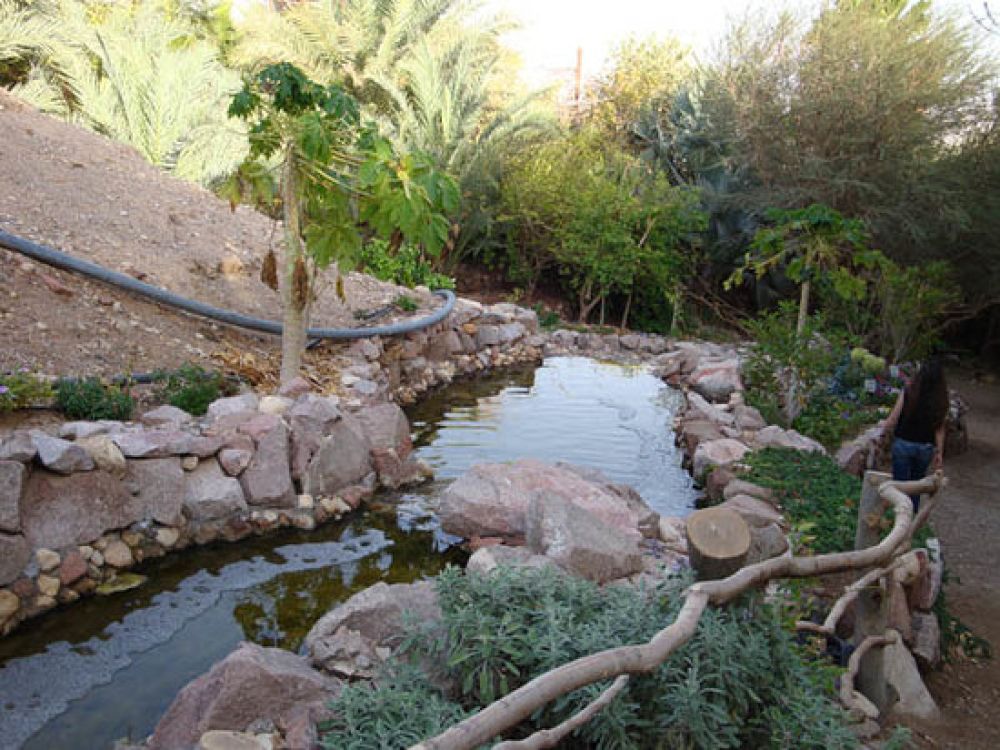

Situated at the northern edge of Eilat, a city known for its stunning Red Sea coral reefs and laid-back ambiance, the Eilat Botanical Garden is a green sanctuary amidst the arid landscapes of the Negev Desert. The history of tourism in Eilat and the establishment of the Botanical Garden are closely intertwined, reflecting the city's development as a tourist destination as well as its commitment to environmental sustainability and conservation.
Tourism in Eilat began to flourish in the second half of the 20th century. Initially, its strategic location at the southern tip of Israel, bordering Jordan and Egypt, as well as its access to the Red Sea, made Eilat an important port city. Over time, the clear waters, rich marine life, and warm climate attracted visitors from both within Israel and abroad. The construction of the Eilat Airport in the 1960s and the subsequent development of hotel infrastructure catalyzed the city's growth as a resort destination.
With the increase in domestic and international tourists, Eilat expanded its offerings, developing a range of activities from snorkeling and dolphin encounters to desert treks and cultural experiences, thereby ensuring a steady growth in tourist numbers over the years.
In the midst of its tourism boom, the Eilat Botanical Garden was established as a private initiative by a local family. Their vision was to create a lush oasis in the middle of the desert, showcasing the possibility of greening the arid environment using innovative irrigation techniques. The transformation of the once barren land into a thriving botanical garden was not only an ecological triumph but also added a unique attraction to Eilat's tourism portfolio.
The garden opened its doors to the public in the early 21st century and has since become a sanctuary for both visitors and a wide range of plant species from around the globe. It features a rainforest, a herb garden, an African savannah, and more, all maintained through sustainable practices.
In recent years, Eilat has seen a rise in eco-tourism and sustainable travel, with tourists increasingly seeking experiences that are both environmentally friendly and educational. The Eilat Botanical Garden fits perfectly within this trend, offering a low-impact activity that educates visitors on the importance of ecological conservation.
The Botanical Garden continues to attract visitors interested in botany, nature, and sustainable gardening techniques. The ongoing efforts to preserve and expand the diversity of plant life in the garden, coupled with the unique opportunity to experience a thriving ecosystem in the desert, ensure that the Eilat Botanical Garden remains a key attraction for those visiting the region.
Visitors to the Eilat Botanical Garden can explore its winding paths, enjoy the shade of the lush flora, and relax by the natural water lily pools, making it an ideal escape from the hustle and bustle of city life. This serene attraction is a testament to human ingenuity and a love for nature, blending the allure of the desert with the vibrancy of a tropical paradise, and it remains a unique highlight for tourists in Israel's southernmost city.
As the garden continues to evolve, it stands as a beacon of green innovation and exemplifies how tourism, when managed with care for the environment, can contribute both to the pleasure of visitors and the well-being of our planet.